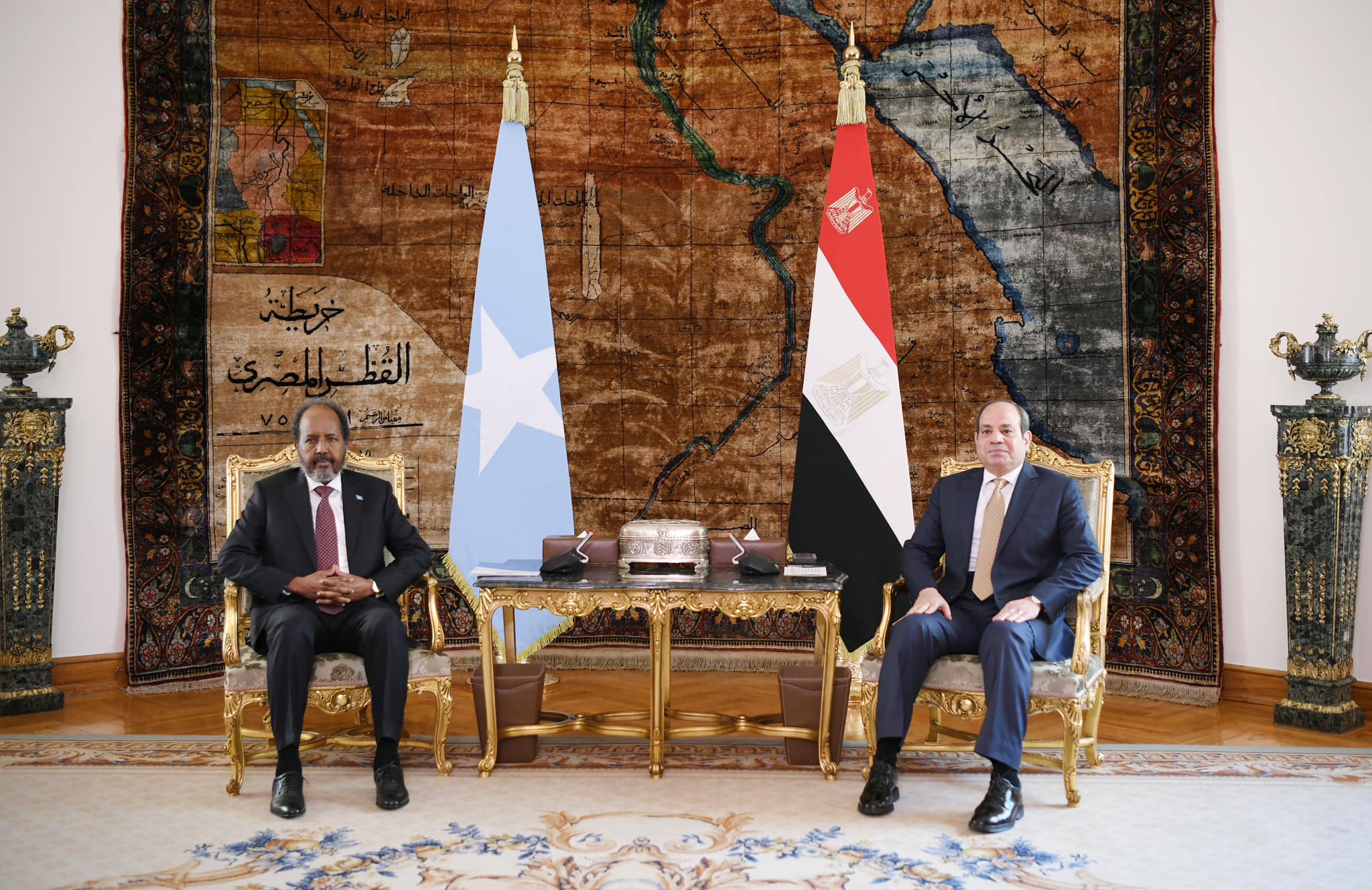
As Ethiopia tries to get to the sea, a partnership between Egypt and Somalia grows
A deal to get access to the ocean adds to the long-running argument about the huge Grand Ethiopia Renaissance Dam, which is still a source of tension today.
Ethiopia is on the edge because of the growing links between Egypt and Somalia. In the meantime, we don’t know how Ethiopia will change its relationships with these countries.
Some things haven’t changed. Ethiopia still has troops in Somalia, and Ethiopian Airlines goes to Mogadishu every day. Since then, Addis Ababa has also built a strong relationship with the military government in Sudan, which is also close to Cairo.
Prime Minister Abiy Ahmed, on the other hand, has to be clear about his country’s desire to get a sea access and keep working for peace in the area while also figuring out how to deal with an enemy that is now a friend.
Ethiopia celebrated its New Year and National Sovereignty Day this week. In a televised speech, Prime Minister Abiy Ahmed told any country that wants to attack Ethiopia to think not just once, but ten times.
He didn’t name a country, but his comments come at a time when things are getting worse between his country and Egypt, its foe.
Somalia and Ethiopia are at odds because Ethiopia has a maritime agreement with Somaliland, a breakaway area that Somalia claims as part of its own land.
According to parts of the deal that officials have talked about, Somaliland agreed to let Ethiopia use its ports even though it was landlocked. In return, Addis Ababa agreed to recognize Somaliland, making it the first country to do so.
Even though both Ethiopia and Somaliland say the deal exists, it has never been made public after being signed on January 2.
Somalia, which was angry about the deal, called the marine agreement an act of “aggression.”
To fight back against what it sees as a threat, Somalia has tried to strengthen its armed ties, especially with Egypt.
Adding to the new tensions in the area is Egypt’s long-running disagreement with Ethiopia over building a big dam on the Nile. After the protests in Egypt, Ethiopia has kept filling the Grand Ethiopia Renaissance Dam (GERD).
Following a recent military deal between Egypt and Somalia, Egypt decided to send troops to Somalia.
In a speech on Ethiopia’s Sovereignty Day, Prime Minister Abiy Ahmed said that Ethiopia does not want a war, but he did tell people who might want to attack to change their minds.
He said that Ethiopia is ready and able to protect itself against any invasion and that Ethiopians are good at fending off such threats.
Last month, when two Egyptian Military C-130 planes flew into the city of Somalia, things got worse in the area. This was a sign of stronger ties between Egypt and Somalia.
Reports say that Egypt plans to send up to 10,000 men to Somalia by the end of the year. Of these, 5,000 will join a reorganized African Union (AU) force and the other 5,000 will be sent on their own.
Since 2007, the AU force, which is now called the African Union Transition Mission in Somalia (ATMIS), has been in Somalia helping the government fight the terrorist group al-Shabab.
Even though Ethiopian troops are part of the AU group, they will be leaving next year when their time with ATMIS ends. The new name for the AU Mission is the African Union Security Support Mission (AUSSOM). Egypt is the first country to agree to send troops, both for this new mission and as part of a mutual deal.
A political expert in the Horn and East Africa, Mr. Metta-Alem Sinishaw, says Abiy’s recent warning is the government of Ethiopia’s way of stirring up national pride against what they see as foreign aggression.
“I purposely didn’t name any countries in the speech so as not to make things worse,” he said, adding that it fell short of his goal of getting access to the sea and building a navy base to have more power in the Red Sea.
“The main issue that caused Somalia to side with Egypt and made things worse is his hasty and unintentional deal with Somaliland, not threats against Ethiopian sovereignty.”
Critics say that Ethiopia’s once-active policy has turned into a defensive one.
Speaking about Ethiopia, Metta-Alem said, “Defending a sovereignty needs both a domestic and a regional approach. Domestically, Ethiopia is in a political, economic, and security crisis, so it needs a comprehensive approach that includes at least national reconciliation, political stability, and economic growth.”
In the region, the new military partnership between Egypt and Somalia makes the main structural problem in the area harder to understand.
Somalia joins forces with Ethiopia’s “enemies” because the trouble in the Horn of Africa won’t go away.
Some of Ethiopia’s Gulf allies are also fighting in countries that are each other’s allies.
In contrast to Sudan, the UAE has good relationships with both Egypt and Ethiopia. Along with other nearby countries, the Kingdom of Saudi Arabia and Egypt helped to create the Council of Arab and African Coastal States of the Red Sea and Gulf of Aden. That Council did not include UAE and Ethiopia, though.
Port link in Djibouti
Almost all of Ethiopia’s goods go through Djibouti Port. Last week, Djibouti made the Tadjoura port available only to Ethiopia as a way to end the standoff with Somaliland. The offer was made, but Addis Ababa has not replied. As Metta-Alem says, it taught us two things.
One reason is that ties between Addis Ababa and Djibouti might not be good, or the Tadjoura port doesn’t meet Addis Ababa’s needs for building a naval base by the sea, in addition to being a good place to do business.
Because it takes a lot to build a port, he said, the desire for sea access might not even be a policy that was made in the country.
Egypt, meanwhile, says that Ethiopia is putting its Nile water source at risk by building the GERD. Ethiopia needs the GERD, which would be Africa’s biggest hydropower project, to get its energy, but it has caused a lot of trouble with Egypt, which gets a lot of its water from the Nile.
Tuesday, Ethiopia told Egypt it needed to stop being “aggressive” about the Nile dam.
Egypt recently wrote to the UN Security Council to complain about Ethiopia’s continued dam filling, which Cairo said was against international law. Addis Ababa was replying to that letter.
Egypt was able to cut off and encircle Ethiopia because they thought that GERD was causing the Nile water flow to drop.
All Categories
Recent Posts
Tags
+13162306000
zoneyetu@yahoo.com



